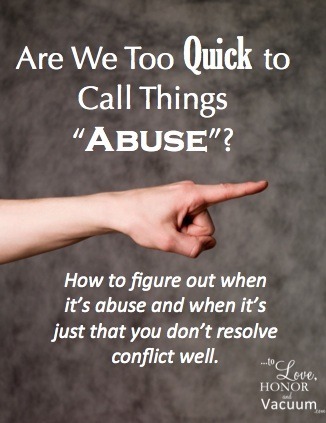Sheila Wray Gregoire's Blog, page 219
January 24, 2014
We’ve Got Cooties!
Every Friday my column appears in a bunch of papers in Ontario and Saskatchewan. This week’s column was really just a shortened version of yesterday’s post, so instead I thought I’d run a column from back in 2007, that I really enjoyed. We’ve had some heavy posts this week, and I thought we needed something lighter!
 Recently, a friend warned me that one of my daughter’s playmates had lice, so before Katie went to bed that night, I called her over to take a peek at her scalp. As I parted her hair, I was greeted by a bug running for cover.
Recently, a friend warned me that one of my daughter’s playmates had lice, so before Katie went to bed that night, I called her over to take a peek at her scalp. As I parted her hair, I was greeted by a bug running for cover.
I did what any normal mother would do. “Keith,” I shrieked, “get over here!” He ambled over, not too worried, and gazed at the offending creature. “Huh,” he said. “Look at that.” He’s a pediatrician, and pediatricians have no sympathy unless someone is coughing up a lung.
I insisted that he leave right that instant and get some lice killer shampoo. He asked if it could wait until morning. I gave him That Look. Off he went.
We stayed up until midnight as I picked eggs out of my daughter’s hair. We changed everyone’s bedding, even mine, because she likes to crawl into bed and wrestle in the morning. We banished all stuffed animals to garbage bags in the garage for two weeks. We vacuumed the sofa. Basically, I overreacted. But let me reiterate: my kid had something crawling in her hair. I think I was entitled.
The next day, I ran an internet search for information about lice, and found a very comprehensive site put out by Harvard University. But the more I read, the more I felt that these people had far too much education to understand the real world.
First, Harvard went to great pains to declare that having lice is not a big deal.
It doesn’t cause any illness or infection, and it’s not nearly as transmissible as a cold or flu virus. They went on to say that kids with lice should be allowed in school, because we let kids in who have colds. And colds, to Harvard, are far worse.
Obviously no one at Harvard has ever done laundry.
But here’s the thing, Harvard. I knew Katie wasn’t going to die, or get a debilitating illness, or be disabled. I was not worried about her health. But I was worried because my kid had bugs in her hair. Bugs. In. Her. Hair. Pardon me if I think that’s a big deal, but I think having insects crawling on one’s scalp is enough to cause most mothers to go into panic mode.
Harvard then went on to explain how lice tend to like clean hair, so there should be no stigma attached to it. Again, I understand. I know that it was not Katie’s fault that she got it.
But it would be my fault, I think, if she failed to get rid of it. While clean kids get it, dirty kids rarely get over it. It’s not easy to fight the little buggers; you have to comb those eggs out, and they’re sticky little things. You have to kill all the little babies. You have to wash your child’s bedding and toys. But some parents don’t do all this. And then a few weeks later the child has a full blown case again.
It’s almost guaranteed that there will be at least one child per classroom who has chronic lice, and I know some parents who make sure their children’s hair is not “clean” at school as a precaution. It’s not that they swear off shampoo; it’s that they pile on the gel and hair spray. Apparently the bugs don’t like goop, so it’s like putting a “No Trespassing” sign on your children’s heads. We’re going to do that from now on, even though Harvard failed to recommend it.
They did, however, try to put a positive spin on the lice thing in general, proving once again that academics are overpaid.
“A few lice on the head should not cause alarm; rather, they present an opportunity for parents to spend the needed time with their children in order to find and remove the offending insects.” What a great bonding opportunity!
If any of you would like such an opportunity, we saved a few eggs in a plastic bag to use in a science experiment later. I’d be glad to give them up. Personally, though, I’d suggest a game of Monopoly or a walk around the block. But then, I don’t have a Ph.D., so you’ll have to make that judgment yourself.
Don’t miss a Reality Check! Sign up to receive it FREE in your inbox every week!
The post We’ve Got Cooties! appeared first on To Love, Honor and Vacuum.
Related posts:
How Do People Get Here?
When My 10-Year-Old Wants to Cuddle





January 23, 2014
Is Your Husband Abusive? Be Careful of “Abuse Creep”
 A few years ago a friend whispered to me that she was leaving her husband. He was emotionally abusive towards their kids, and she couldn’t run interference any longer.
A few years ago a friend whispered to me that she was leaving her husband. He was emotionally abusive towards their kids, and she couldn’t run interference any longer.
My heart went out to her. I had never witnessed that type of behaviour from him, but who knows what goes on behind closed doors? And so I hugged her, and assured her I would stand by her side.
Fast forward to the present day, and that horrible, abusive father now has custody more than half the time. As soon as the separation was finalized, my friend willingly sent her kids to this “abusive” man. Meanwhile she’s setting up house with another guy.
I have known so many women in horribly abusive situations who needed to get out, and perhaps because of that it irks me even more when we throw the word “abuse” around so cavalierly to justify our own actions. If her husband was so abusive that she had to leave to protect the kids, why did she so willingly hand them over?
Many of you email me with problems that you’re having in your marriage, and I often see people using the word “abuse” when I wonder if that’s what they really mean. On Monday, my post about what to do when your husband’s a bad stepfather, a little discussion broke out in the comments about that exactly. One commenter said that I shouldn’t take women’s labeling of behaviour as abusive at face value, but should say something to the effect of, “if you wouldn’t leave over it, it’s not abusive, so don’t call it abuse.” I think she’s right in general, although in this particular case the letter writer did comment that she also felt badly about using that word. So I’m NOT writing this post about that letter writer. I just thought it was important to bring up, because I think we do treat the word too cavalierly.
Women Sometimes Label Husbands “Abusive” Because They Want the Moral High Ground
What happens when a friend tells you that her husband is abusive towards her, or towards her kids? Chances are you react the way I did with my friend: you sympathize. You feel horrified. You want to help.
Hopefully you’ll also ask some prodding questions and find out what behaviour, exactly, is abusive. But we know in this society that abuse is a horrible, horrible evil, and so when we use that word, we automatically get the moral high ground.
Please hear me: I am absolutely not saying that abuse doesn’t happen. As I wrote, there is way too much abuse in Christian homes, and we often use the word “submission” to justify it. Abuse is real and should never be tolerated.
But at the same time, we have to be careful of labeling things as abusive so that we can win an argument or get people on our side, because that happens, too. We’ve started labeling normal, albeit unhealthy, methods of dealing with conflict as abusive. If he yells, he’s abusive. If he manipulates, he’s abusive. If he’s jealous, he’s abusive. And as soon as we’ve done that, we’ve dropped the atomic bomb on his reputation and on our ability to work through this issue calmly. Now some people who yell and manipulate and are jealous are abusive, but not all. And I think we’re too quick to use the word.
How Do I Know if My Husband is Abusive?
(I’ve updated this section since I wrote it first)
Most women who are being abused are so downtrodden that they find it really hard to do anything about it. They think they deserve it; they don’t know what to do. So let me offer a litmus test for whether or not it’s abuse:
If you say he’s abusive, but you stay with him and leave your kids with him, then that should be a signal that something’s not right and you need to take action. Either he is abusive, in which case you need to leave; or he isn’t, in which case you need to stop slandering him.
Please note that I am not saying that if you stay with him that means that he’s NOT abusive. Many women stay with an abusive husband when they should get out. What I am saying is that if you say your husband is abusive, that, in and of itself, is a signal that YOU MUST NOW DO SOMETHING.
If he is abusive, I know that’s really hard. It’s hard to get help. You feel helpless, and you feel like you deserve it. But please, reach out and talk to someone! Call the abuse hotline. Even call the police! But do something, for you and your kids.
If he isn’t really abusive, then you need to stop calling him abusive and start looking at healthy ways to resolve conflict.
Again, as soon as you use the word “abuse” without doing something concrete to leave, that is a signal that you are in the wrong and need to take action.
Let’s reserve the word “abuse” for things that are so dangerous that leaving for your protection, or your children’s protection, is necessary.
You Are an Adult; Act Like It
There’s an additional danger to this “abuse creep”: when we start thinking of ourselves as “abused”, when we are not, then we feel helpless, as if we’re victims, and we often fail to draw healthy boundaries to stop dysfunctional behaviour.
Sometimes we create this dynamic where we don’t draw the line when a spouse is acting inappropriately. That’s usually what we start to term “emotional” or “mental” abuse. Someone yells, or they’re controlling, or they’re belittling. We don’t know how to handle it, so we label it abuse. Now, this very well could rise to the level where it is abuse (that’s why you need to ask other people to help), but quite often it’s just unhealthy patterns.
And too often we do nothing except fret about it. You don’t want to rock the boat. But sometimes you have to stand up and do the right thing!
If your spouse is yelling, mocking, or belittling you, say firmly, “I won’t sit here and listen to you talking to me like that. When you’re ready to have a healthy conversation I would love to participate, but until then I’m going to another room.”
If your husband won’t let you have access to money, then go to the bank and demand a debit and credit card off of the accounts. If the accounts aren’t joint, ask your husband to make them joint. You do have rights to communal property.
If your husband demands an accounting of where you’ve been and whom you’ve been with constantly, don’t give it to him. If he insists, tell him you’d be happy to do so in the presence of a third party, like a counselor, who can mediate and help you figure out if he’s being overly jealous or not.
I’m just saying that often when we say “my husband is abusive“, what you really mean is “my husband is acting in a way that makes me sad and upset and I feel like I can’t do anything about it.” I understand the feeling, but nobody else is going to fix your relationship for you. Sometimes you need to step in and set proper boundaries and start taking the initiative so that the dysfunctional patterns are fixed, rather than getting worse.
Of course, if you’re scared to do any of these things because you think he may get violent, then you have a bigger problem and you really do need help. Please get it! But in many cases, I think, women are just so scared of conflict that we don’t speak up, and then when we hear him yell we call it abuse when it’s really just that neither of you knows how to resolve conflict well.
Abuse should never be tolerated, and if your spouse is abusive, then please get out and protect yourself and your kids. But when we start labeling all unhealthy behaviour as abusive, we’re not helping our families; we’re hurting them. Abuse is awful, but so is refusing to take responsibility to do your part to fix unhealthy relationship patterns. So, please, resist the urge to point fingers, and start building a better marriage.
Have you ever seen the word “abuse” get tossed around inappropriately? How do you figure out if it’s an abusive situation or not? Let me know in the comments!
(This post has been updated from its original version).
The post Is Your Husband Abusive? Be Careful of “Abuse Creep” appeared first on To Love, Honor and Vacuum.
Related posts:
Overcoming the Effects of Sexual Abuse: It’s Nothing but a Neuron!
More on Chinese Mothers, Parenting, and Verbal Abuse





January 22, 2014
Wifey Wednesday: My Husband Needs to Change!
It’s Wednesday, the day when we always talk marriage! And today I want to talk about a really common feeling women have: Why is it always me who needs to fix the marriage, when my husband needs to change! If he’s the one who needs to change, why is it always me who needs to do the work?
I totally understand the sentiment. One woman wrote it this way after reading my post “Does Everything Really Come Down to Sex?”:
I am not sure why but this post makes me feel a little angry inside. I guess women should sex their husbands regularly so that their husbands will be productive members of the household…It just seems so ridiculous to me. I wake up at 5, feed the baby, make the kids lunches, take the kids to school and daycare, go to work, come home, make dinner, clean up dinner and prepare for the next day. I literally don’t stop until I get into bed (usually around midnight.) I do all of these things because it is what I have to do. If I don’t my husband won’t. How am I supposed to make sure he is pleased when he doesn’t do anything to help or please me. Do I like sex? Yes, but when am I ever energetic enough to do it? Hardly ever. “Sex is your way of saying to him, “I’m committed to you, I love you, I want you, I value you.” If he knows that and feels it, it’s so much easier to then bring up the really big issues that are bothering you.” Wait, so me taking care of our children, feeding our family, keeping our home, none of these things say that I love and value him? I bristle against the notion that in order for our husbands to want to please, help, show us love that we first have to somehow convenience them with sex. I can certainly say that I would feel a whole lot more receptive to sex (and would have more energy instead of falling into bed at night) if he ever washed bottles, or did the dishes after dinner, or washed the laundry every now and then. I get it, somebody has to give first, but WHY DOES IT ALWAYS HAVE TO BE ME?
I really do understand the frustration. She’s absolutely exhausted, she does too much, he does very little, and then she says, “why do I have to be the one to fix the marriage?”
I know many of you reading this blog feel the same way, so I want to give a few thoughts:
1. You Can Only Take Responsibility for What’s in Your Control
Why am I always telling women how to change their behavior and attitudes? Because those behaviors and attitudes are in your control. Your husband’s behaviors and attitudes aren’t.
You may want him to change, and you may think he should pick up some slack, and you may think that he should be nicer, but the truth is you have absolutely no control over that. You really don’t.
So we have to look at strategies that YOU can do to make your marriage better. Sitting back and fuming and growing resentful because he isn’t doing anything isn’t going to help. You may feel morally superior, because he obviously has so much he needs to change, but that’s not going to get you a good marriage.
2. I’m Writing this Blog to Women!
Here’s something else people often don’t understand. This blog is primarily for women. I do have quite a few male readers and I do appreciate them, but I’m writing to women. My books are written to women. So for me to write a big post on what men should do really doesn’t help. It may make all of us women feel better, but it isn’t going to do a thing to help your marriage, because YOU’RE reading this, not your husband.
Now, a while ago I did go on a rant and wrote a post directed at men: Here’s What I Wish I Could Say to Men about Sex. I felt so much better getting that out! But it was still primarily women who read it.
I know there are areas where men need to change. If you wanted me to go on a rant about it, believe me, I could fill major blog posts, like this:
For pity’s sake, stop playing video games all the time and pay attention to your kids! Don’t expect your wife to make love if you never help with the kids and she’s exhausted. Get off of your butt and clean the house a bit. If your wife leaves you with the kids, you’re not “helping her”. They’re your kids, too! That means they’re your responsibility, too!
Etc. etc. etc.
But again, what good would those posts do, other than make us all feel better and superior? If I’m writing to women, I don’t want to get you all riled up about what men should do. I want to actually offer practical help, and that means addressing what’s in our control.
3. Chances Are He’s Hurting, Too
Here’s the big one that most of us just don’t get. If you’re unhappy with your life, chances are he is, too. He’s not experiencing that intimacy he needs if you’re unhappy. He may look like it’s all peachy keen, but chances are he’s upset about something, too. And if you can go and think about what he’s missing, and reach out and meet his needs, often you start a domino effect that has great benefits for your marriage.
I know it’s hard to reach out when you’re lonely and frustrated, but if you do that, you really can change the dynamic in your marriage. Things won’t change if you sit there and do nothing. But if you decide to find things to be grateful for, start encouraging him even when you don’t feel like it, and step out when it comes to sex, you may just find that his attitude towards you changes, too.
Sure, it would be nice if it did that on its own. Sure, he should be loving you regardless. But if he’s not, are you going to sit there and just be angry about it? Or are you going to do something about it?
4. If Your Husband Needs to Change, You Likely Need to Set Boundaries
When I’m talking about changing the way that you relate to your husband so that you fix your marriage problems, that doesn’t only mean encouraging him, making love to him, or praising him. These are important things, yes. But sometimes we need to change by simply drawing boundaries and doing less.
 It’s like what Geri Scazzero said in her book The Emotionally Healthy Woman. Sometimes in order to find real peace we have to quit. And many of us are overfunctioning in our marriages, and the more we overfunction, the more he underfunctions.
It’s like what Geri Scazzero said in her book The Emotionally Healthy Woman. Sometimes in order to find real peace we have to quit. And many of us are overfunctioning in our marriages, and the more we overfunction, the more he underfunctions.
She tells her own saga of getting to the point where she needed to quit. Her husband was a busy inner-city pastor, and Geri felt like the proper Christian woman poured herself out for her kids, and her husband, and never asked anything of anybody. So she always said yes whenever someone from church needed her. She ran programs. She said yes to having people for dinner. She had no time to herself, no time to be creative, and no time to recharge.
Eventually she couldn’t take it and she told her husband she was quitting going to their church. That put in motion a whole series of steps that finally helped their family come to healthy balance. And much of that was letting go of the things that she was doing so that others would rightly do them. In Boundaries in Marriage Henry Cloud and John Townsend talk about a similar dynamic. They say that God designed this world so that “you reap what you sow”. When you sow something bad, you get something bad. The problem in many marriages, though, is that the person sowing the bad stuff isn’t reaping it. So dad is grumpy and mean to his wife and kids, and the wife and kids walk on eggshells around him so as not to set him off. They’re reaping what he is sowing.
The key, then, is to allow the person who is reaping something to also sow it.
How does this relate? Sometimes, if your husband needs to change, he can’t until you start putting up some boundaries. Look at this woman’s letter for a minute. She’s probably exaggerating a little, but it seems as if she gets about 6 hours of sleep, which isn’t enough. She’s completely haggard. That’s simply too much. It’s unsustainable. Sure, you can keep doing it, but you’ll lose yourself and you’ll burn out, and what kind of mom, let alone wife, will you be?
Perhaps the best thing she could do to change, then, is to start saying “no”. Sit her husband down and say,
“I can’t keep working at a full-time job unless you also start to do some of the childcare responsibilities, like taking them to daycare or making half the meals or doing some of the housework. If that’s not possible for you, then what I’d suggest is that we find ways to reduce our costs so that I can work part-time, because I can’t keep doing this.”
Maybe it means moving back to an apartment, or whatever. I don’t know. But she can start saying, “no”.
When I say that a woman needs to change, then, I’m not always saying that she needs to bend over backwards to meet all of his needs. Here’s what I’m saying:
She should bend over backwards to meet his legitimate needs, and she should examine herself to make sure she’s not trying to meet needs that aren’t hers to meet.
I think quite often we’re meeting the wrong needs. We’re spending tons of energy and time on things that don’t build relationships (getting kids in tons of extracurricular activities, working full-time, volunteering at church, creating a perfect home), and in the process we’re making ourselves exhausted. We’re also spending tons of energy doing things for people that they could and should do for themselves (doing all the housework, making kids’ lunches, etc. etc.) The more we do this, the less energy and time we’ll have to meet our husbands’ legitimate needs for affirmation, encouragement, intimacy, and even sex.
If you’re absolutely exhausted and you’re upset that your husband isn’t equally exhausted, it can look like he’s getting a free ride.
The answer, though, isn’t always for your husband to change. Sometimes it’s for you to start saying no. Saying no to all the things you do. Saying no to overfunctioning at home. Saying no to outside activities. And then you’ll be able to say yes to the things that actually do build marriages!
I hope that makes sense! I know sometimes reading blogs it can seem like the only way to fix a marriage is for the woman to change. That’s not what I’m saying. I’m simply saying: take control of what is in your control. Examine yourself first. Do what you can. Change the dynamic. And then see what happens!
Now, do you have any advice for us today? Link up the URL of a marriage post to today’s Wifey Wednesday, and get some traffic back to your blog!

Marriage isn't supposed to be blah!
Sex is supposed to be stupendous--physically, emotionally, AND spiritually.
If it's not, get The Good Girl's Guide to Great Sex--and find out what you've been missing.
The post Wifey Wednesday: My Husband Needs to Change! appeared first on To Love, Honor and Vacuum.
Related posts:
Wifey Wednesday: Helping Your Husband Feel Strong
Wifey Wednesday: 25 Quick Ways to Show Your Husband Love
Wifey Wednesday: The Courage To Change The Things You Can





January 21, 2014
Top 10 Books to Read in 2014 to Boost Your Marriage
 It’s Tuesday, so it’s time for a Top 10 list! And today I thought I’d share a list of the best Christian marriage books that will help your marriage this year.
It’s Tuesday, so it’s time for a Top 10 list! And today I thought I’d share a list of the best Christian marriage books that will help your marriage this year.
I asked a while ago on my Facebook Page for recommendations for great marriage books, and so many of you left great suggestions. I’m sorry I couldn’t include them all! You can go over and read those suggestions here.
But I’ve included the ones that resonated the most with me.
Now, ladies, I’m not doing this to overwhelm you. I’m not saying, “you need to go out and read all ten of these books RIGHT NOW!”
I’m saying that we could all grow a little bit in our marriage this year, and that’s a great goal. So I’ve divided these books up into different categories, and why don’t you pick a category that you need to grow in the most, and then pick one book? Just one.
Decide to read one book this year and then actually put it into practice. That’s better than reading ten, anyway! So choose one book in an area that you know you need, and I know you’ll see some real benefits.
Christian Marriage Books To Grow a Healthier Marriage
1. Boundaries in Marriage

Drs. Cloud and Townsend open their book with a great story of two different couples. Both have been married for over thirty years. One couple is at a buffet restaurant with one of the authors, and when the husband is finished his main course, he gestures to his wife, and says, “Doris, dessert now.” He wants her to go get him dessert. She’s embarrassed but she does it. The other couple takes pains to care for each other. They don’t walk all over each other. They treat each other kindly, and marriage is a joy.
And yet both marriages started out on very similar footing. In both marriages she did most of the work, and he thought he should get the perks. But only one marriage ended up happy, because in only one marriage did the woman learn how to draw boundaries effectively so that they were each treating each other with respect, in a Christlike manner.
Most couples have no idea how to draw boundaries and how to resolve conflict. This is a really practical book, and it will open your eyes to some of the roots of conflict in your marriage. I highly recommend it!
 2. The Emotionally Healthy Woman
2. The Emotionally Healthy WomanSometimes in order to build a great marriage we need to start saying “No”–no to overfunctioning, “no” to caring what other people think, “no” to feeling guilty. In The Emotionally Healthy Woman, Geri Scazzero tells the story of how she was way too busy. She did too much in her husband’s church. She allowed her husband to never be home because she felt that’s what a good Christian wife did. She pushed herself to her emotional and physical limits because she thought her only role was to pour herself out for everybody else.
And in the process she made herself miserable and her family miserable. Their family only started to heal and grow together in a healthy way when she started learning to say “No”. A great book for any woman who feels exhausted and wonders how to stop the frantic pace of life!
 3. Rocking the Roles
3. Rocking the RolesWhat does it really mean to submit? To love your wife as Christ loved the church? To be a leader in marriage? Robert Lewis and William Hendricks tackle that huge can of worms in this supremely practical book, filled with lots of examples.
Here’s what I really appreciated about the book: they didn’t just say “here’s what the wife should do” or “here’s what the husband should do”. They also provided a blueprint of what a spouse can do when the other ISN’T fulfilling their role. And I really appreciated the end of the book where they give some concrete examples of how church leaders should help when roles are going really unfulfilled–something I commented on in my post Are You a Spouse or an Enabler? Sometimes I think we look at roles in a vacuum–you have to submit, period. But what do you do if you’re in an impossible situation? They offer some help that is sorely needed.
 4. Mystery of Marriage
4. Mystery of Marriage When I was compiling this list of ten books, I asked my agent, who has read every Christian marriage book under the sun, what book stood out to him. And he said, without hesitation, “Mystery of Marriage”. It’s twenty years old now, but still highly relevant. Mike Mason writes meditations on what marriage really means, and what intimacy really means. It’s highly readable, in a first person account, that will open your eyes to the deeper significance of marriage and propel you to make your marriage the best it can be!
Chip says, “It’s just really, really good.” And when he says that, it’s high praise.
Christian Marriage Books To Grow Your Sex Life
 5. The Good Girl’s Guide to Great Sex
5. The Good Girl’s Guide to Great SexIf sex has never been that stupendous in your marriage, you need this book! We were created to enjoy sex, and to have it unite us physically, emotionally, AND spiritually. If it’s not doing that in your relationship, don’t settle for that. Embark on a really fun research project to make it wonderful in your marriage, too!
I deal in this book with why God made sex the way He did, and then I look at how we can have great sex in each of the three areas: physical, emotional, and spiritual. In a survey I did recently of my regular readers, I found that 80% had not actually purchased any of my books yet. So I know many of you reading this have heard of this book but haven’t bought it yet. There’s so much more in it than is in the blog, and I know that it will bless your marriage!
 6. The Sex Savvy Wife
6. The Sex Savvy WifeJ from Hot, Holy and Humorous has just come out with this gem–The Sex Savvy Wife: A Lovemaking Guide for Christian Women. It’s great paired with The Good Girl’s Guide. J gets supremely practical, and deals with the “how-to” of everything you can imagine in the bedroom. It’s more detailed in that sense than my book. It’s even got–gasp!–some diagrams.
I love that she went where many are afraid to go, and I’m happy to carry her book in my store, too. If sex has seemed awkward, and you just don’t know if you’re “doing it right”, J helps you figure it out and make it amazing. And it’s only $4.99!
Books to Grow Your Prayer Life in Marriage
 7. Praying God’s Word for Your Husband
7. Praying God’s Word for Your HusbandI just love Kathi Lipp! And in this amazing book she helps us be our husband’s best cheerleaders by showing how we can pray God’s word in specific areas of our husband’s lives to support them, encourage them, and help them thrive.
I love this approach because it gets our eyes off of what we want and it gets our eyes back where they belong–to what God wants to do in our husband’s lives. And Kathi writes so simply, and with such passion for marriages. I’ve spoken with her at MOPS conventions before, and she’s such a great, godly woman. All of that shines through in this book. If you’ve wanted to pray more deliberately, and to see great changes in your husband, pick this one up!
 8. Little Book of Powerful Prayers
8. Little Book of Powerful PrayersIt seems odd to put this gem in a list of marriage books, but I truly believe this will help your marriage!
Stormie Omartian has written a little book with prayers from each book of the Bible–and several from a few. So as you pray through it you see the story of God unfold throughout its pages.
But here’s the reason I love it for marriage: I think many of us have difficulty getting a prayer life going with our husbands. We’re not necessarily comfortable praying out loud, and we don’t know when to pray or how to pray. This book has awesome prayers that you can pray together. Just keep it by your bedside, and every night hold each other’s hands and one of you pray the prayer. Then the other can add something if they want to (but they don’t have to). I think praying together, even just for a minute or two, can add so much to a marriage. And if you don’t know how to start, this book can be your guide.
Christian Marriage Novels to Help Your Thought Life
 9. A Time to Dance
9. A Time to DanceNovels can sometimes teach us truths in a way that a nonfiction book can’t, and so I’ve decided to highlight two novels (although there are many more that are uplifting for marriage!). I have to admit I don’t love ALL of Karen Kingsbury’s books, but I really loved this series. It follows a middle-aged couple who have drifted apart. Everyone thinks they have the perfect marriage, but years of not paying attention to that marriage have led to potential emotional affairs, lots of retributions, and distance.
How do you find your way back when you’re not even sure you like each other anymore? In this book the couple has decided to divorce, but they decide not to announce it until after their child’s wedding. And as the wedding approaches, they realize how much they actually do have to lose if they split up. It was uplifting, and it reminded you of the importance of working on your marriage so that drift didn’t happen. A great read!
 10. The Scarlet Thread
10. The Scarlet ThreadI love Francine Rivers’ books, especially the Mark of the Lion series. Or should I say, I love MOST of Rivers’ books (more on that in a minute). Rivers started out as a romance writer, and then was saved. So her books changed. But I think she writes of marriage so realistically and beautifully. And this book shows a woman who is doubting her marriage who finds an old diary, and in it she starts to see the hand of God in her ancestor’s life and marriage, and then begins to see it in her own, too.
And her marriage changes when she gets a new attitude and starts learning to love. It’s really quite beautiful.
One caveat, though: I really didn’t like And the Shofar Blew by Rivers. In that book, a pastor grows increasingly away from God as his church grows, and he eventually falls into an affair. Yes, he’s restored at the end and yes, their marriage is saved, but I felt that the wife was a complete doormat. If she had spoken up when her husband started to fall, and taken her concerns to the elders of the church, much of the heartache could have been avoided. I’m afraid that this particular novel tells women to do absolutely nothing when your husband is in sin, and that is not the message of the Bible that I see. So while I love The Scarlet Thread, and I absolutely adore the Mark of the Lion series, I’m not as fond of all of her marriage books.
So there you go–a list of ten books to help your marriage thrive this year. Why not choose one, in an area where you know you need to grow, and read it and put it into practice!
And leave your suggestions for great Christian marriage books in the comments!
This post contains affiliate links.

The post Top 10 Books to Read in 2014 to Boost Your Marriage appeared first on To Love, Honor and Vacuum.
Related posts:
Books to Help You Deal with Affairs in Your Marriage
Why Your Husband Wants You to Read this Marriage Blog
Reader Question of the Week: On What We Read





January 20, 2014
Reader Question of the Week: My Husband Isn’t a Good Stepfather
On Mondays I like to take a stab at answering a Reader Question. A woman wrote in whose husband is just not very nice to her son (her husband’s stepson). What do you do when your husband’s a bad stepfather? She writes:
My husband married me with three children. At the time two were preschoolers and one was a teenager. They are now 11,12,20. My first husband died a year prior to us getting married. We thought we should go ahead and get married to help our family heal. Since we were old friends and both Christian we thought it was a win win. But my problem is he seem to treat my youngest son, the 11-year-old, mean. He acts like he doesn’t want to be bothered with him. And my son really feels it so he turns to my 20-year-old for protection. I guess you can imagine that tension. I try to speak to him about it but he simply denies anything harsh inside. I feel like a terrible mother allowing this to go on. He doesn’t hit him but the mental abuse is just as worse. I really don’t know to do. Please help. Thanks.
My initial thoughts are: if your husband is truly being abusive, you need to get help for your son. Absolutely. Getting a third party involved who knows all of you and who can help you navigate this is likely in order, just for the protection of your son.
However, it looks like there’s something else going on here, since a parent is rarely abusive to just one child. I didn’t really feel equipped to handle this one, so I asked Ron Deal, founder of Smart Stepfamilies, to take a stab at it for me.
Here’s Ron:
Step-Families Can Have Difficulty Bonding
While it’s true that stepparents and stepchildren typically don’t share the same depth to their emotional attachment as biological parent-child relationships—and this difference impacts parenting—that may be only part of your situation. Let me explain.
Both biological mothers and fathers form a deep emotional, psychological, and spiritual attachment to their child even while it is in the womb. It is a miraculous process to have a child and the bond between parent and child reflects the profound nature of this miracle. Any biological parent know exactly what I’m talking about.
Stepparents and stepchildren must grow their bond over time. I suppose you could say that they choose love and to be family, rather than having it rise up from within them. This, too, can lead to a profound attachment. (Adoptive and stepparents with long-term relationships know what I’m talking about.) But it can be rough in the early years as adult and child learn about one another, learn to trust, respect, and like each other, let alone love each other.
Without question, the attachment bond—whether weak or strong—impacts parenting. In two of my books The Smart Stepmom and The Smart Stepdad I discuss in great detail why, for example, children snub a stepparent saying, “You’re not my mom. I don’t have to do what you say.” In effect, they are saying, “I don’t trust you or respect your authority enough to obey you. Without shared DNA, you don’t have the right to tell me what to do.” Oddly enough, no one, not society or the court system—not even children, make that same rebuff to biological parents. Apparently, shared chromosomes automatically grants one authority! Being a biological parent also grants you automatic respect, “insider” status with the child, love, grace in conflict, and loyalty. It really helps parents to be parents.
Stepparents, however, don’t get automatic anything. They have to earn like, love, respect, authority, forgiveness when wrong, etc., etc. This can be an arduous and challenging process depending on the openness of the child. If a child is closed and hostile toward the stepparent, they stand on thin ice. If the child is open and welcoming, the stepparent can bond with a child quickly and to a wonderful depth.
The Biological Parent Often Distrusts the StepParent
If managing the process of bonding isn’t difficult enough for stepparents, add to it the distrust that comes from the biological parent. Biological parents raising their children disagree with each other from time to time about how they should manage the child’s behavior, but rarely if ever does one parent accuse the other of not loving the child. “You grounded our teenager for a few days too long and I know why – because you hate our kid,” just aren’t words you hear between parents.
But in a stepfamily situation, it’s not uncommon for a biological parent to doubt the heart of the stepparent toward a child.
This is what I hear in your question. “My husband doesn’t like my son.” And notice how it impacts you and your marriage. You feel guilty for not protecting your son and it pits you against your husband. It automatically divides your home into insiders (biological family members) and outsiders (husband/stepdad). That division is extremely common in blended families (or might I say, not-so-blended families).
Personality Clashes Can Be Common
But there’s something a little odd about your situation that deserves consideration. You have two other children and your husband doesn’t appear to have issue with them. Typically, a stepparent who really doesn’t want to be a parent to stepchildren (this does happen, but I find it to be rare) doesn’t engage any of them. They resign from any role with the children—not just one.
I’m wondering if your situation is more perhaps a clash of their personalities than an issue in stepparenting. Without knowing the history of your husband and all three kids over the past six years it’s difficult to know for sure, but you might need to adjust your assumptions about the motivations of his heart. Doing so might soften your approach toward him:
“Honey, it occurred to me that you have a pretty solid relationship with my older two kids and I see how you tried with Johnny early on, but it didn’t work very well. What are the things about him that make it tough for you at this point to connect with him?”
Sometimes personalities even between biological parents and children just don’t mix. When there’s other children that a parent does easily connect with, the challenging child becomes the odd man out and sometimes, the scapegoat. Let me be clear: the animosity your husband is showing your son needs to change. The real dilemma is what you can do about it. Here’s what I know: if you approach your husband with misguided assumptions, venom and accusation, he won’t be influenced by you. Softly enter his experience and try to hear what the road blocks are for him first, then discuss with him how that might change. My guess is he feel stuck and wants a better relationship, but just doesn’t know how to get there. If you stand against him he will not explore that with you. If you gently come beside him, he might let you be a resource to help him through. That would be a win-win.
Thanks, Ron!
To sum up: if you fear it’s abusive, get a neutral party in to help you figure that out. But on the whole, it could very well just be a personality clash. We’re a biological family, and we’ve walked through this with my husband and my daughter–a two year period when I felt that he was being too hard on her. We got through it and everything’s fine. But because he was her biological father, I never doubted that he loved her, and it was likely easier to deal with.
It occurred right around when she was 11 as well, and I wonder if that’s just a hard time for parents in general? Then, throw a stepparent into the mix, and it’s easy to start doubting the whole thing. So I like Ron’s take: check if it’s just a personality clash, and then try to weather that and navigate it together. Don’t create an us vs. them mentality, because that can be so damaging!
Now let me know in the comments: have you ever dealt with something like this? How do you navigate it?
Ron L. Deal is president of Smart Stepfamilies™, director of FamilyLife Blended™, a popular conference speaker on marriage and family matters, and author/coauthor of a series of DVD’s, books, and curriculum for stepfamilies including The Smart Stepfamily, The Smart Stepmom, The Smart Stepdad, The Remarriage Checkup, and Dating and the Single Parent. Learn more at FamilyLife.com/blended.

The post Reader Question of the Week: My Husband Isn’t a Good Stepfather appeared first on To Love, Honor and Vacuum.
Related posts:
Reader Question of the Week: Why Isn’t My Husband More Affectionate?





January 17, 2014
The Blessings of a Long Marriage
Every Friday my column appears in a bunch of papers in Ontario and Saskatchewan. This week I’m sharing about the richness and value gleaned from a long marriage.
 The best part of the sixty-fifth birthday party I attended last night, other than the Chinese buffet, was definitely the slide show. Of course black and white pictures of a cherubic-looking boy are always adorable, but it was those late teen years pictures, when a rather familiar looking girl starting showing up, that made me smile.
The best part of the sixty-fifth birthday party I attended last night, other than the Chinese buffet, was definitely the slide show. Of course black and white pictures of a cherubic-looking boy are always adorable, but it was those late teen years pictures, when a rather familiar looking girl starting showing up, that made me smile.
And so we watched through forty-five years of hilarious photos, with the wedding, the babies, the cottage, and then more weddings and now lots more babies.
It’s a rich life.
When we first moved to our small town Roger became my husband Keith’s mentor, going out for coffee with him every so often and talking about work and parenting and marriage. Roger would, of course, be quick to tell you that the mentorship really went in the other direction. He’s the kind of person who genuinely enjoys and appreciates people.
So there he was last night, with his daughters directing the show (insisting they were being “decisive”, not “bossy”), and his wife grinning from ear to ear, as people praised him and told him about all the seniors’ discounts he could now claim.
Twelve hours later, though, it is still the pictures that keep flashing through my mind.
They show heritage, dedication, and a whole lot of barbecuing. And yet I know that behind all those smiling, laughing faces there were moments when things weren’t as rosy. There were moments when even a Roger, the nicest guy you could ever meet, lost his temper. There were moments when he and Heather truly didn’t know what to do with some of their children. There were health problems and family problems and all those things that none of us can escape.
And yet last night Roger and Heather stood with their arms around each other greeting their friends, beaming.
It’s a life well lived.
The idea of forty plus years together with one person seems so daunting. Wouldn’t that get boring? Most of us suffer wanderlust at one time or another. We’re with the same person, day after day, with all these responsibilities, and we wonder, “what would life have been like if I had married my high school boyfriend?” Or we think, “I bet life would be a whole lot more exciting if I were with my co-worker, who’s always the life of the party, rather than my husband, who is always grumpy.”
We want something new and something exciting, not something that we’ve had everyday for sixteen years, through seventeen hundred diaper changes, or twenty-two hundred loads of laundry. Life just gets monotonous.
The measurement of maturity, though, is whether or not one can forego immediate rewards for delayed gratification of better rewards. Too often people throw something away because they want the excitement of something new.
Everything new, though, will eventually be old. Unless you want to cycle through constant change your whole life, at some point you’re going to have to decide to commit to someone or something.
Sometimes everyone needs a fresh start if the life they’re living is dangerous, abusive, or degrading. And sometimes we’re thrown into that fresh start through no fault of our own. Yet too often people chuck something just because it’s lost that “newness” feeling.
Yes, infatuation is heady, but you know what’s even better? Forty years of friends and family who can stand there when you’re sixty-five and still say all kinds of great things about you–because you’re still around. You haven’t gone anywhere. You’re with the same people, you’ve invested, and now you’re reaping the rewards. There’s no awkwardness with the kids or grandkids. There are no pictures you have to exclude from a lifetime of memories. There’s just a life well lived, and that is something exciting.
Don’t miss a Reality Check! Sign up to receive it FREE in your inbox every week!

The post The Blessings of a Long Marriage appeared first on To Love, Honor and Vacuum.
Related posts:
Thursday: Thirteen Blessings!
Don’t Be Afraid of Brokenness in Marriage
Living in a Loveless Marriage: Will My Marriage Ever Get Better?





January 16, 2014
Myers Briggs ESFP–The Perfect Christian Woman (with a WARNING!)
Last week I wrote on the Myers Briggs Type Indicator–the MBI–and how they classify different personalities. I’m an ENTJ, and I told you all why that sometimes makes blogging difficult. If you want to know more about what the letters mean, I’ve got a quick description of MBTI types here.
It seems most of you really liked the post, and many asked me to write more on personality and marriage. So today I thought I’d tackle a different type–the ESFP. And why choose the ESFP? Well, let me describe her:
E- She’s extroverted. She likes to process things by talking about them. She rejuvenates by being with people.
S- She’s a detail person. She likes doing things step-by-step.
F- She focuses on relationships. She’s interested in people. When making decisions, she asks: “How will this affect other people?” She values emotion over logic.
P- She’s a go-with-the-flow person. She’s easy going. She doesn’t like planning too much. She’d rather be “moved by the Spirit”.
Do you notice anything about that? Let’s summarize it a little more:
She’s humble. She respects authority. She not brassy. She loves people. She’s caring, often in the background. People flock to her. They tell her everything. She tears up easily. She genuinely cares.
See it yet?
Let me summarize it a little more:
The ESFP is the perfect Christian woman.
And that, my friends, can be a real curse.
I know a lot about ESFPs, because this is my family:
My oldest daughter and I are both ENTJs, which is the exact opposite of the perfect Christian woman. We challenge authority. We’re the first to run around shouting, “The Emperor Has No Clothes!” We’re interested in doing what is right, even if it occasionally means stepping on toes. It’s a matter of justice, you see.
But to an ESFP, the important things are relationships. Here’s a graphic depiction of the difference between the two types:
Isn’t that cute? But here’s the problem, and why I want to talk about it today:
The ESFP doesn’t like change, and doesn’t like conflict. And at the same time, the church is telling the ESFP female, you’re fine just the way you are! Because of that, it’s very easy for the ESFP to sit back and keep doing what they’ve always done, without having to grow or stretch themselves. But when they do that, it’s very likely that they will get walked all over, and will find that the things they want most aren’t coming to them. They often end up very dissatisfied.
The benefit of being an ENTJ is that we clash with the Christian culture, and so we’re terribly aware that we have areas of growth–we need humility, we need more grace, we need to learn to play well with others.
ESFPs don’t tend to get that same feedback. And so it’s easy to sit back and be comfortable–ESPECIALLY because it’s also your nature to sit back and be comfortable. So you have two forces telling you not to change and not to grow–your own personality and the church culture.
The thing about personality, though, is that one is not right while another is wrong.
Just because there is a cultural “perfect Christian woman” type doesn’t mean that this actually IS the perfect Christian woman.
I think Jesus was perfectly balanced. He wasn’t a type; He was Himself. He was the only one who could deftly manage the balance between the four preference dichotomies (extrovert/introvert; sensing/intuiting; feeling/thinking; judging/perceiving). When we find our type, we figure ourselves out, which is fun. We know our strengths and our bent, but we also know our weaknesses. And knowing your weaknesses is extremely important, because it’s in our weak areas that we need to grow.
Our church culture may value a certain type for females, but Jesus values ALL the types. Just as the body is made up of many members, so the church is made up of different types, with all having things to contribute. We’re all necessary.
So just because the ESFP is the cultural ideal for a Christian female, it does not mean that all females should be ESFPs. Nor does it mean that female ESFPs have got it made.
I see a lot of evidence of the ESFP/ISFP type in the comments section of the blog. They’re often the first to say, “just pray and leave it to God,” or “Sure, that may be bugging you, but why make a big deal about it? Let it go!” Now, both of those things may be EXACTLY the right thing to do in certain circumstances. But quite often they’re not. And the challenge for the ESFP/ISFP type is to stretch themselves to stand up for what is right, or they have a tendency to get walked all over.
Here, then, are three areas in which ESFP/ISFP types need to be very careful, and need to grow if you’re going to have happy marriages, happy families, and a happy church life:
1. Dear ESFP: Not all Problems Are Your Fault
The ESFP is very focused on people, so when people start treating them badly, they often internalize the problem and turn themselves inside out to try to fix it. My daughter Katie has had several friends treat her very poorly, and her response has always been to love them more and try to fix the relationship.
Because Katie is surrounded by ENTJs, Rebecca and I have often challenged her, saying, “why would you WANT to fix that relationship?” If someone is treating you that badly, why do you want to keep investing in them when there are others who treat you better and need you more? And Katie has learned to call people on things when they behave inappropriately.
What does this mean for marriage? In marriage, ESFPs will tend to own the problem, too. If a husband is using porn, they’ll look to themselves and say, “how did I cause this?” If a husband isn’t engaged with the kids, they’ll say, “what am I doing to drive him away?” It’s good to ask these questions, but it’s wrong to STOP at those questions.
Growth rarely takes place unless we are willing to name the issue and state what is wrong. It’s easy to say “I’ll give it to God in prayer, and completely surrender it,” but beware of taking this approach too often. For an ESFP it’s an easy way out of having to do anything. And perhaps what God is asking you to do is to calmly confront your husband on something that he is doing wrong.
 I just read a great book about this called The Emotionally Healthy Woman by Geri Scazzero which talks about how to confront and say no when you have to. It’s easy to read and has brilliant insight for all types (I learned a lot, too!). But ESFPs and ISFPs really need to read this.
I just read a great book about this called The Emotionally Healthy Woman by Geri Scazzero which talks about how to confront and say no when you have to. It’s easy to read and has brilliant insight for all types (I learned a lot, too!). But ESFPs and ISFPs really need to read this.
2. Dear ESFP: Sometimes You Have to Say No and Stand Up for What’s Right
A few years ago my girls belonged to an unhealthy youth group. When Rebecca and I noticed some of the negative things occurring, we talked to the leadership (Rebecca even took the initiative to do this as a 14-year-old kid). Katie, on the other hand, kept wanting to give them “one more chance”. Becca and I were yelling, “CHARGE!”, bayonets drawn. Katie was hemming and hawing in the background.
But after giving them a second chance, Katie drew a line in the sand, and said “enough is enough”. We have to do what is right. And because she’s an ESFP, she won’t change her mind now. She doesn’t like change, so once she’s changed once, she won’t go back.
It’s hard to say no as an ESFP because you want people to like you. You’re a people pleaser. When you see something you disagree with, your tendency is to assume that you’re misinterpreting it, or you’ve got the story wrong, or perhaps you’re just wrong and they’re right. Katie is often fond of saying, “I don’t really have opinions, the way Becca and you do, Mommy.”
Yet Katie does have opinions (just not as strongly as Becca and me), and for the ESFP, it’s vitally important to trust your gut. That gut is often the Holy Spirit talking to you. When you start to feel that something isn’t right, listen to that feeling. Don’t reason it away, even if it’s scary and goes against what you would naturally do.
How does this apply to marriage? If your husband feels that something is wrong in the extended family, at church, or at the workplace, listen to him. Your tendency will be to smooth things over, but he could very well be right that something needs to be done. And if you feel like your husband is wrong about something–say he’s doing something bad, like using porn, or ignoring the kids, or being verbally abusive, stand up for yourself and your children and get help.
3. Dear ESFP: Take Initiative!
Katie hates change. She’s a home body. She doesn’t like trying anything new. All her life I’ve had to push her and prod her and shove her to do new things. She’s currently ranked eighth in international Bible quizzing (which means she has like nine whole books of the Bible memorized), and she absolutely loves the competition. But I had to force her to do that, too, because it was new!
It’s hard for ESFPs to take intiative to get out of their comfort zone.
In my extended family is another ESFP. She had a rather unhappy marriage to an INTJ. He basically walked all over her. But before she left him, she complained to me, “He never does anything with the kids! He never takes them to the park. He never plays with them. He just does his own thing!” The problem was that she never took her kids to the park, either. She was sitting back, waiting for her husband to take the lead. And when he didn’t, the family withered.
What this means for marriage: If things aren’t going well in your marriage, don’t wait for him to change. You do something! If you’re not connecting, find a new hobby you can do together. If you aren’t dating, you plan the date. If he isn’t what you want in a spiritual leader, you start figuring out how to pray together. If your sex life is blah, you take the initiative to do something new. Don’t sit back and wait for him to do it. If you want a different life, you have to start doing things differently, too.
The church tells women that we should all be ESFPs.
The church does a poor job of telling us how to confront sin and injustice; how to draw healthy boundaries; and how to take on leadership and initiative when we have to.
ESFPs are great at loving others; they need to give themselves permission to love themselves.
Incidentally, I think Katie is becoming the perfect Christian woman–in the right sense, not the cultural sense. She does love people, and she automatically puts people at ease. But because she’s surrounded by ENTJs and ESTJs, she has been pushed, and she’s grown, and she’s become a natural leader. She doesn’t stand for injustice. She’s starting to try new things.
Maybe we all need friends and family of opposite types who can help us grow in our weak areas, too!
I hope that in some way this blog can serve that role for you.
Now, let me know: Do you see ESFP tendencies in yourself? Do you have a hard time drawing boundaries? Let’s talk about in the comments! And my older daughter, my ENTJ, has written about what it’s like being a Christian ENTJ girl. It’s not easy!

The post Myers Briggs ESFP–The Perfect Christian Woman (with a WARNING!) appeared first on To Love, Honor and Vacuum.
Related posts:
That One Perfect Person
Can You Help This Woman Whose Husband is a Picky Eater?





January 15, 2014
Wifey Wednesday: The ONE Thing You Can Do To Improve Your Marriage
It’s Wednesday, which means it’s time to talk to marriage! I’ll introduce a topic, and then you all can link up your own marriage posts in the linky below. Today we’re going to tackle the ONE Thing you can do to improve your marriage.
I received an email from an exhausted reader last week saying that she didn’t need five tips or seven tips or three tips to help. She just needed ONE–one thing she could do that would make things better. Sex is a chore, life is hard, and she’s running out of steam. How does she make it better? Obviously there are crucial things like pray more, or learn to be more giving, which I talk about a lot, but she wanted something supremely practical and out of the box.
And so here it is–the ONE Thing–the EASIEST Thing–You can do to Improve Your Marriage
Are you ready?
Stop Over-Analyzing.
That’s it.
Here’s why. Picture this scenario:
You’re tired, and you’re pulling yourself upstairs after a long day. You know that it’s been a couple of days since you last made love, but you’re not sure if you want to. So this is what goes through your head:
You’d be asleep sooner if you stopped the inner monologue and just jumped him!
Or here’s another one: The teens are downstairs playing video games and it’s 7:30. The dishes are still on the counter. You hear your husband get up from the table where he is working and start walking towards the kitchen where you are. You have this fleeting thought–heading upstairs for a quickie would be fun! But then the other thoughts start:
The dishes aren’t done yet. The kids might come upstairs and hear. I have so much to get done before tomorrow! He’ll think I’m crazy. He’ll start expecting this all the time. I’m not even sure I want to. He’s kind of been ignoring a bit all evening…
And so you give him a fleeting smile when he walks in the kitchen to get a cup of coffee, and you start running the water for the dishes.
Imagine if that scenario had played out differently.
He walks into the kitchen, you get a sly grin on your face, you touch him somewhere private, and say, “let’s head upstairs”. Giggling you both hurry upstairs where you have some very quick fun. You come back downstairs a few minutes later, hair all messed up, and start the dishes. Chances are he helps. Or he stays in the kitchen and starts talking to you. The rest of the evening is rather stress free, and you’re smiling a lot.
But this doesn’t just apply to sex! Here’s another scenario:
Your husband says on a Saturday morning:
Let’s just get in the car and drive somewhere! We’ll take the kids for a hike and go out for lunch! It’ll be so much fun.
But you think,
“we have hockey practice at 3, and the house is a mess. I need to get the kids to do their chores. I haven’t even prepared my Sunday School lesson for tomorrow yet. I was planning on taking today to just decompress so that I’d have energy for tomorrow.”
So you tell him it just won’t work. He sighs and goes back to whatever he was doing.
In fifteen years, do you think the kids would remember the day they ditched responsibilities and went for a winter hike? You betcha. Do you think they’ll remember a Saturday when they stayed at home and did chores before hockey practice? Nope.
Obviously we can’t take off all the time, and chores are important, but I think too often we women are thinking about a million things in our minds–all the things that need to get done, that are on our plate–that we forget to make memories and just plain laugh.
And laughter often happens when we’re spontaneous.
Listen, ladies: we’re born analyzers. We analyze everything from the time we’re small children. When you went out on your first date you analyzed that, going over every move, trying to figure out if he really liked you. We think and think and think.
Sometimes you need to turn it off. You don’t have to have everything planned. You don’t have to get everything done. You don’t have to have a reason for everything. Sometimes you have to just DO–just live in the moment and have fun.
If we do that more often, I think we’d have much stronger marriages.
Now, what advice do you have for us today? Just link up the URL of a marriage post you’ve written in the Linky below!

Marriage isn't supposed to be blah!
Sex is supposed to be stupendous--physically, emotionally, AND spiritually.
If it's not, get The Good Girl's Guide to Great Sex--and find out what you've been missing.

The post Wifey Wednesday: The ONE Thing You Can Do To Improve Your Marriage appeared first on To Love, Honor and Vacuum.
Related posts:
Wifey Wednesday: Invest in Your Marriage
Wifey Wednesday: 3 Basic Things to Remember to Make Marriage Last
Wifey Wednesday: 3 Things to Keep in Mind to Make Marriage Last





January 14, 2014
Top 10 Tips for Getting Better Sleep
 It’s Top 10 Tuesday, when I share the top 10 tips about something.
It’s Top 10 Tuesday, when I share the top 10 tips about something.
I was asking on my Facebook Page last week about tips for marriage books to read, and I’ll have that list out NEXT Tuesday. Didn’t have time to get it ready for this week.
Instead I asked guest poster Jill Marks to share 10 GREAT tips for getting better sleep.
As I’ve said before, sleep is a marriage issue. When we’re sleep-deprived, we get into more conflict. We don’t want sex. And we lose intimacy. Going to bed at a decent time and getting sleep is one of the best things you can do for your marriage.
Here’s Jill telling us how:
Writing about sleep is pretty ironic to me right now, as I have an almost 4 month old and spend my days (and nights) fantasizing about sleep. And praying about sleep. And mourning sleep. Sleep…I just want sleep! But, I digress.
There was a time in my life when I was getting good sleep and my husband was getting good sleep. We recognized early on in our marriage the importance of sleep to our general satisfaction with each other. When we are overly tired we are quick to snap at each other, short on patience and much more likely to get upset over small things that really don’t matter.
We therefore have always tried hard to achieve a good night’s sleep, but now, in the postpartum haze, we have become even more aware of our needs. My husband requires a few hours of quality sleep to function well, whereas I need much more, whether it be quality or not – I just require a lot of horizontal time!
Recognizing each other’s needs is the first step in getting good sleep. For example, knowing that my husband only needs a few hours of uninterrupted sleep, I often send him to bed early to get in 4-5 hours before he has to take over baby duty. Or, I give him an hour or two on a Saturday afternoon to have the house to himself and catch a good nap. Once his sleeping needs are met, he is more easily able to help me meet my sleeping needs, and neither of us gets overly exhausted.
 Besides being aware of how much rest our spouse needs, we also try to follow these 10 tips for getting better sleep.
Besides being aware of how much rest our spouse needs, we also try to follow these 10 tips for getting better sleep.1. Cut caffeine.
I know, you hear it all the time, but that’s because it is true! Cut off all caffeinated drinks by noon. Even decaf coffee has trace amounts of caffeine. Switch to water, or try this hydrating electrolyte drink instead.
2. Eliminate light.
Any light that invades your sleep space disrupts the production of melatonin. Invest in room-darkening curtains, unplug the alarm clock/cell phone, and cover up any other little lights. Sleeping in darkness is better for your health, and you will notice a difference in your sleep quality.
3. Get a Routine.
Try to go to bed and wake up at the same time every day, even on the weekends. Ever since we became a family of 3, we are in bed by 9:30, because we know she will be awake and ready to go by at least 7:00!
4. Use essential oils.
If I have had a rough day, or am particularly wired, I always apply lavender essential oil or the Serenity blend from doTerra on my feet and on my temples. Both help me relax and fall asleep more quickly. My friend Kimball, who is a doTerra consultant, also recommends Balance, frankincense, and sandalwood, or a “Quiet Mind” blend of vetiver, Whisper, frankincense, and bergamot.
5. Use Magnesium.
This stuff is amazing. Truly! The majority of Americans are severely deficient in magnesium. Magnesium deficiency can cause a host of problems, with one of the biggest being sleep disturbances. Try this magnesium lotion before bed, and a better night’s rest is guaranteed.
6. Soak in a Relaxing bath.
This is one of my favorite ways to promote a good night’s sleep. Draw a nice warm bath, add some epsom salt or magnesium salts, and include a few drops of lavender or Serenity essential oil. Or, try this soothing herbal bath for a 20-minute soak right before you hit the hay.
7. Drink Herbal tea.
Chamomile or lemon balm tea about an hour before bed is a good way to transition from awake time to sleepy time.
8. Have Sex.
Yup, I said it. The release of endorphins can be just what your body needs to go into a deep, restful trance. And hey… you get to have sex too. Win-win.
9. Eat a Light snack.
A high protein snack right before you shut down for the night can prevent hunger pains from waking you in the wee hours. Try a glass of raw milk, some of this delicious beef jerky, or for blood sugar regulation, try a spoonful of raw honey.
10. Clear your mind.
During the day, you likely do about a million different things. Or at least you think about doing a million different things! About an hour before snooze time, shut off your electronics, step away from Facebook, and take some time to clear your mind. Through prayer, meditation, or just talking through your day with your spouse, take time to clear your mind and save your worries for the daytime.
Hopefully these ten tips will help you and your spouse get a good night’s sleep. Do it for your marriage!
Sheila says: Thanks so much, Jill! Those are great–and many of them I’d never thought of before. For my readers: Make the most of this post by writing down the THREE tips that you don’t currently do, but need to, and writing them on your fridge. Don’t try to do all 10! This post is meant to help you brainstorm by throwing out a bunch of ideas, and then you find what works best for you. Now pick ONE to start this week, and ONE to start next week, and so on. Try adding one new thing a week of your top 3, and you’ll find yourself sleeping better!
 Jill Marks works as an editor and virtual assistant at Modern Alternative Mama She has been on a real food journey since July of 2011 and is passionate about food. She is a Jesus-loving, Bible-reading, kombucha-brewing, raw milk–drinking, real food–eating gal, who was born and raised in the midwest. She and her husband were recently blessed by the birth of their first child and are adjusting to life as a family of three. To contact Jill, check out her website, Making Our Marks.
Jill Marks works as an editor and virtual assistant at Modern Alternative Mama She has been on a real food journey since July of 2011 and is passionate about food. She is a Jesus-loving, Bible-reading, kombucha-brewing, raw milk–drinking, real food–eating gal, who was born and raised in the midwest. She and her husband were recently blessed by the birth of their first child and are adjusting to life as a family of three. To contact Jill, check out her website, Making Our Marks.

The post Top 10 Tips for Getting Better Sleep appeared first on To Love, Honor and Vacuum.
Related posts:
Getting Enough Sleep
Wifey Wednesday: Get Some Sleep
25 Marriage Tips





January 13, 2014
Reader Question of the Week: My Husband is Inconsiderate
It’s Monday, which means it’s Reader Question of the Week Day! Today we’ve got a question from a woman who asks, what do you do when your husband is inconsiderate, but you don’t want to nag? How do you put up appropriate boundaries?
Are there “consequences” that I can give to my husband when he’s been inconsiderate for lack of a better word? I know he’s not a child, and he’s truly a wonderful man. We’ve been happily married for over a decade and sex is great! The only major issue I have is the fact that he has no sense of time at all and this has lead to a few occasions where I’m at home worried sick wondering if he’s had an accident.
This happened again this evening: he left home at 7:15 to have our van checked by this mechanic who works out of his house. He should have been back within an hour. After 2 hours, I think, ok, they’re chatting. I text him. No answer. I call. His phone appears to be off (highly unusual). 3 hours later, I’m starting to worry a bit, but keep reminding myself of his track record. By 11:45 I’m in a full fledged panic, picturing him dead. Finally he comes home and says he’s sorry, his phone was out of range and he just totally hit it off with this guy and had no clue what time it was. Really?!? You didn’t notice 4 hours went by?!?
That’s a tough one, and I would have been worried, too. So how do you make sure this doesn’t happen again, when he’s the kind of person who  doesn’t think of you sitting at home, worrying? A few thoughts on an inconsiderate husband:
doesn’t think of you sitting at home, worrying? A few thoughts on an inconsiderate husband:
Make Sure this is a Personality Issue, Not a Relationship Issue
This likely doesn’t need to be said in this particular instance, because this woman seems very confident in the relationship, and the sex is great. But when a husband is consistently gone for long periods and you can’t get a hold of him, and he doesn’t have a good reason, it’s likely good to make sure that it is simply because he’s forgetful or inconsiderate at times, and not that something else is going on behind your back.
I’m not trying to see adultery when it isn’t there, but many women have been blindsided, and it’s likely good to make sure.
If Your Husband is Inconsiderate, it May Be More that He’s Spontaneous and “In the Moment”
Taking this note at face value, and assuming nothing more nefarious is going on, some people just are more spontaneous and go with the flow than others. For them, they throw themselves into the here and now and pay total attention to what’s in front of them. On a Myers Briggs personality chart, since we were talking about that last week, they’d be Ps rather than Js. Combine that with extroversion, because they like being with people, and you have someone you can easily label inconsiderate, because it’s easy for them to get carried away in the moment.
Likely this is a trait you enjoyed when dating. When he was with you he was completely with you. It was as if you captivated him. He’d drop everything and do something crazy with you. It was fun! But once you’re married, what seemed spontaneous and fun can also seem inconsiderate. So just remember that this trait in him also has a beneficial side. It does make him more fun, and it does make you feel more the center of attention when he is home.
Think Strategies to Solve the Problem
So what do you do to stop the problem so you won’t worry? Nagging or yelling at him won’t work, but you can sit down and problem solve together.
Figure out a way to HELP him do what you need him to do, rather than to punish him for not doing it. That way it’s not “You’re doing something bad and you’re the problem”, it’s more “we have a problem because I feel nervous when I don’t know where you are”, and you can then work on that together. It’s just a different dynamic.
So what are some possible solutions? Maybe it means every night YOU plug in his phone to make sure it doesn’t run out of battery. Maybe it means that he sets reminders on his phone to ding every two hours to call you or text you. Brainstorm together! This way you’re helping him remember to contact you and tell him where you’ll be, and you won’t worry because it’s easy to get a hold of him.
Setting Consequences if Inconsiderate Behavior Continues
If being late is hindering you in other ways than just causing worry–ie. he’s never home for dinner, or you’re consistently late for appointments and events, you can certainly implement consequences for that. The family can go ahead and eat at 6:30 whether he’s home or not, unless he’s texted you to tell you when he will be home. You can put his food in the fridge to heat up when he’s home.
 If he’s not there and you have to leave to go to an appointment, you can leave without him. In Boundaries in Marriage, Cloud and Townsend describe it like this: one of the main ways that God put in motion to teach us things is the adage “you reap what you sow”. The problem in many marriages, though, is that one person is sowing confusion, but the other person is reaping it. So in this case, one person is sowing inconsideration, but it is the wife and kids who are bearing the burden by being late, or by not eating on time, etc. etc. To right the situation you just have to make sure that the one who is sowing the bad seed reaps it by instituting these consequences. It’s not about getting angry or punishing him; it’s just about setting proper boundaries.
If he’s not there and you have to leave to go to an appointment, you can leave without him. In Boundaries in Marriage, Cloud and Townsend describe it like this: one of the main ways that God put in motion to teach us things is the adage “you reap what you sow”. The problem in many marriages, though, is that one person is sowing confusion, but the other person is reaping it. So in this case, one person is sowing inconsideration, but it is the wife and kids who are bearing the burden by being late, or by not eating on time, etc. etc. To right the situation you just have to make sure that the one who is sowing the bad seed reaps it by instituting these consequences. It’s not about getting angry or punishing him; it’s just about setting proper boundaries.
So those are some quick thoughts. Recognize that if your husband is inconsiderate, there’s likely another side of that personality trait that you actually enjoy. Make a point to notice that! Try to problem solve together so the particular issue doesn’t rear it’s ugly head again. And if it’s a consistent problem, implement consequences so the right person bears the brunt of the behavior.
I hope that helps! Now let me know: have you ever dealt with something like this in your marriage? What did you do? How did you solve the problem? Let’s talk in the comments!

31 Days to Great Sex is here (only $4.99!) It's the best $5 you'll ever spend on your marriage!
Learn to talk more, flirt more, and even explore more! You'll work on how to connect emotionally, spiritually, AND physically.
Find out more













